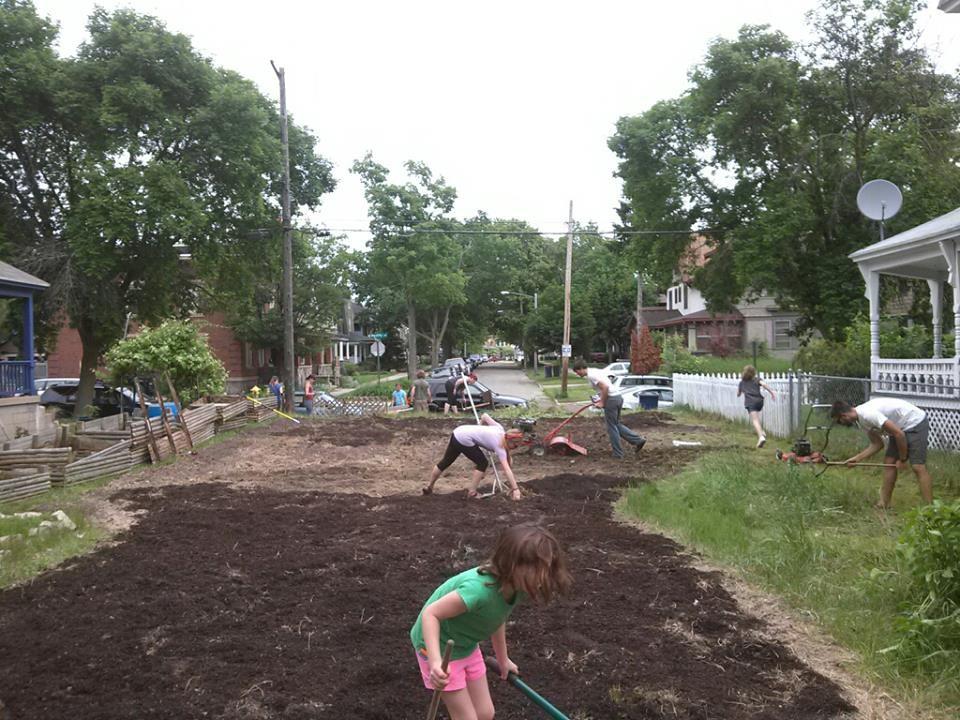Well House enriches lives through urban farming

Jun 19, 2013
The word ‘farming’ usually brings to mind images of open fields, cows and, of course, big, red barns.
But certainly not city streets.
Located in downtown Grand Rapids, the non-profit organization Well House has been providing safe, affordable housing to the homeless for over 36 years. In the process, the organization also has been teaching its residents the benefits of recycling, energy conservation and how to grow their own food in several urban farming plots.
Grand Valley State University student Tegan Alspaugh is currently interning with the organization working as an Urban Farming Intern.
“I help with physical labor such as our most recent project: inoculating logs with mushroom spawn, transplanting our sprouted plants to raised beds, and doing basic care for the various veggies and fruit we’re cultivating,” Alspaugh said.
The crops that Well House focuses on growing are prized for their nutritional and medicinal benefits. For example, attendants of Well House’s most recent project learned how to inoculate shitake mushrooms and then were able to take home logs that should start producing mushrooms within six months.
Aside from working on the farming projects Well House is cultivating, Alspaugh also focuses on education.
“My focus is on the educational part of urban farming and food justice,” Alspaugh said. “I create all of the documents that are used in workshops, plant sales, farmer’s markets, and the food justice section of the Well House website.”
Well House incorporates people at whatever point they are in their lives, focusing on their strengths and abilities to improve their circumstances. The communal housing they provide are valuable assets to the people that need it.
“Currently, Well House has three inhabited houses and one that is going to be redone,” Alspaugh said. “Residents are typically people with disabilities or those who have committed felonies and therefore have a difficult time finding housing.”
Residents can stay one month or many years depending on their individual situation and needs.
“[The houses are] communal living style with each house containing something the others don’t, such as a main kitchen or a TV room,” Alspaugh said. “Food is donated from some of the surrounding food stores or restaurants.”
Well House emphasizes living gently on the earth and practicing recycling, energy conservation, farming, gardening, and gathering and preserving food. In addition to providing housing, Well House’s Urban Farm and Pottery Studio provide opportunities for residents to earn an income and learn skills necessary for entering the workforce.
The mission behind Well House is one that serves the community, and urban farming plays a big part in this purpose. According to the organization’s website, approximately 15% of the world’s food is now grown in urban areas. Urban farming ideally brings people together around the making and consumption of food. Well House uses their farm as a catalyst for food education and food justice.
Through the housing and educational programs available at Well House, the organization inspires members of the community with messages of hope and perseverance. The people and volunteers at Well House are all trying to bring people together and make the Grand Rapids community a better place.
Alspaugh could not be more satisfied with her internship and the goals the organization is accomplishing. “I’ve met some of the most amazing people there, residents and employees,” she said.
For more information, visit www.wellhousegr.org.

























